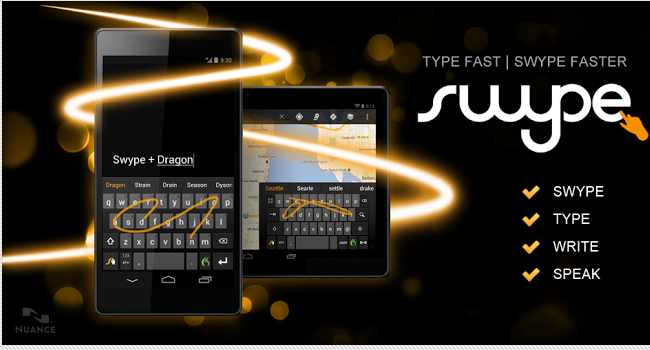SEO has entered a new era in 2026. AI tools are more powerful, users expect instant results and Google continues tightening its criteria for…
Swype exits beta, enters Google Play


While Nokia’s moving towards Blackberry-inspired QWERTY keyboards and Samsung is starting to experiment with innovative gestures, Swype is now out of Beta and comes to the public with new and improved features.
A third-party app competitor to Google-acquired SwiftKey or Google Voice, Swype, is now available for Android on the Google Play store for US$0.99.
Previously, this innovative keyboard was only available on pre-installed devices and has now finally came out of beta. How fast do you care to type on a touchscreen device, or is it more about comfort and personality than productivity?
Users have the choice to buy the app for Android even if it doesn’t have an integrated Swype keyboard. Nuance, which is the parent company of Swype but also the creator of popular speech recognition software, Dragon Dictate, comes paired with the application.
The world record for the most words typed per minute is over 200 on a standard QWERTY keyboard while the average speed is estimated to be between 50 and 70. The average user can type about 33 wpm on touch interfaces and the world record is a staggering 83 wpm on an iPhone. Seeing that it’s designed to be compatible with any touchscreen interface, Swype, on the other hand, estimates that you can ‘swype’ an average of about 40 wpm. With the dictating features of Dragon Dictate, 45 wpm.
The evolution of interaction with devices has gone through many phases. From the QWERTY keyboard on PCs (and then on Blackberry’s) to the number/text keyboards found on previous generation mobile phones. Today though, touchscreen isn’t enough as many developers have tirelessly been working on giving themselves the edge in improving your typing or communication experience with your devices.
As mentioned by The Next Web, Swype “will be able to be a service that understands how you, not its creator, communicates.” The app aims to be able to adapt to the unique writing style of users instead of the other way around. Features of this app includes dialect support for over 20 different languages across the globe. Another feature includes what Swype calls “smart touch” which allows the keyboard software to “learn” your most common typos. Also Swype gives you replacement options when making a grammar mistake while taking the given context into account. Each innovation tries to achieve either productivity or to make the user experience more comfortable or intuitive. Where do you stand? The pro-disruption crowd or the don’t-fix-something-that-isn’t-broken crowd?

